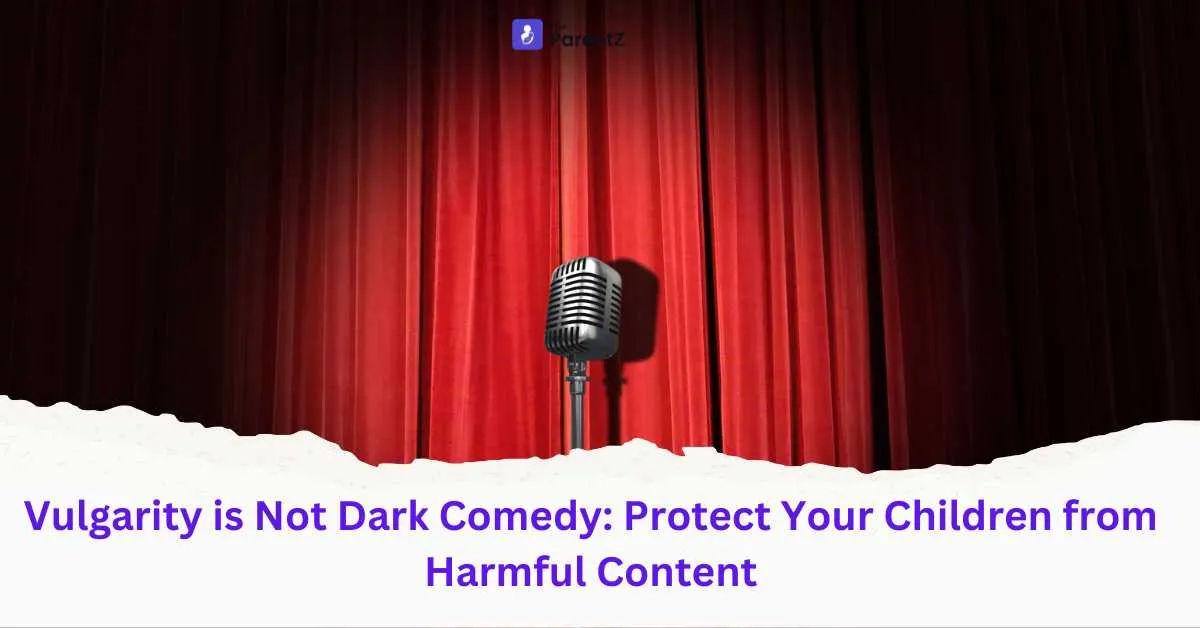In today’s digital age, where content is consumed in the blink of an eye, the lines between humor and offensiveness have blurred. While dark comedy serves as a tool to challenge societal norms and provoke thought, vulgarity often disguises itself as humor while offering nothing of real value. A recent controversy surrounding the YouTube show India’s Got Latent serves as a stark reminder of the importance of curating what our children watch.
Understanding the Difference: Dark Comedy vs. Vulgarity
Dark comedy, also known as black humor, has long been a powerful medium for discussing difficult topics. It uses irony, satire, and wit to shed light on serious issues such as death, injustice, or human suffering. When done well, dark humor does not merely shock—it makes people think.
On the other hand, vulgarity in comedy relies on crude language, offensive gestures, and shock value without any real commentary or purpose. This type of content does not provoke intellectual discussion but instead normalizes inappropriate behavior. What’s worse, it can desensitize younger audiences, making them believe that disrespect and obscenity are acceptable forms of entertainment.
The ‘India’s Got Latent’ Controversy
Recently, India’s Got Latent, a YouTube show featuring popular comedians and influencers, faced severe backlash over inappropriate and explicit content. A particular episode, which included a tasteless joke about sensitive topics, sparked outrage among viewers. The backlash was so intense that the creators had to remove the episode and issue public apologies. However, the incident reignited the debate about responsible content creation, especially in an era where young audiences have unrestricted access to the internet.
Why Parents Must Be Vigilant?
Children today are growing up in a world where digital media is an integral part of their daily lives. However, unrestricted access to content can expose them to harmful narratives, shaping their perceptions in ways that may not align with ethical or moral values. Here’s what parents can do to safeguard their children from inappropriate content:
1. Monitor and Curate Content
Not all online content is bad, but not all of it is appropriate for young minds. Parents should take an active role in curating what their children watch by using parental control settings and regularly checking their viewing history.
2. Educate About Media Literacy
Children need to understand the difference between humor that challenges societal norms and humor that simply degrades people. Teach them to think critically about what they consume and question whether a joke is meant to enlighten or simply offend.
3. Encourage Open Discussions
Rather than banning content outright, engage in conversations about what they watch. Ask them how they feel about certain jokes and whether they think some humor crosses the line. This approach encourages awareness and self-regulation.
4. Set Healthy Boundaries
Limit screen time and encourage diverse forms of entertainment such as reading, outdoor activities, and creative hobbies. The less reliant children are on digital content for entertainment, the less exposure they’ll have to inappropriate material.
5. Lead by Example
Children often emulate what they see. If parents consume and share responsible, meaningful content, children are more likely to develop the same habits.
Conclusion
Comedy is meant to entertain, but it also has the power to shape perspectives. True dark comedy challenges audiences to think, while vulgarity often exploits shock value without purpose. The India’s Got Latent controversy serves as a wake-up call for parents, content creators, and digital platforms to be more mindful of the messages they send.
Protecting children from inappropriate content is not about shielding them from the world but about guiding them to engage with media responsibly. By fostering critical thinking and open discussions, we can ensure that the next generation grows up with a refined sense of humor—one that entertains without degrading others.








